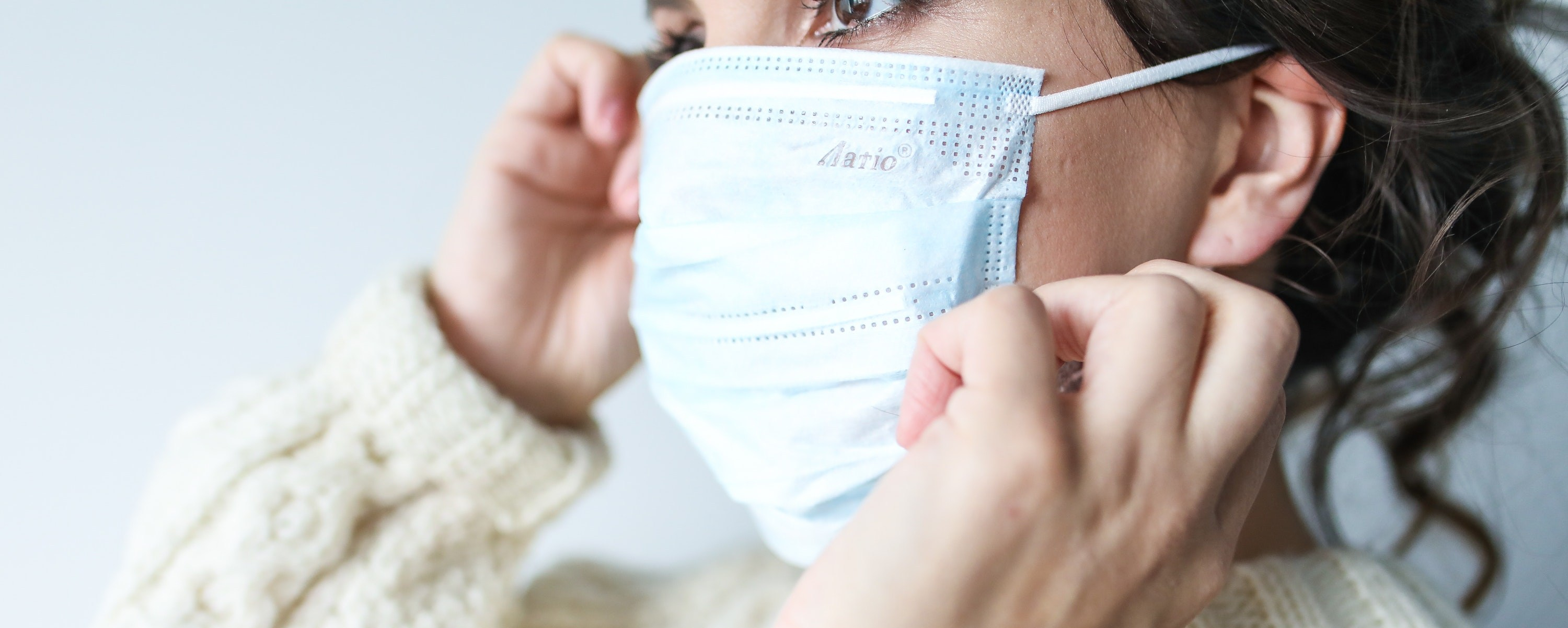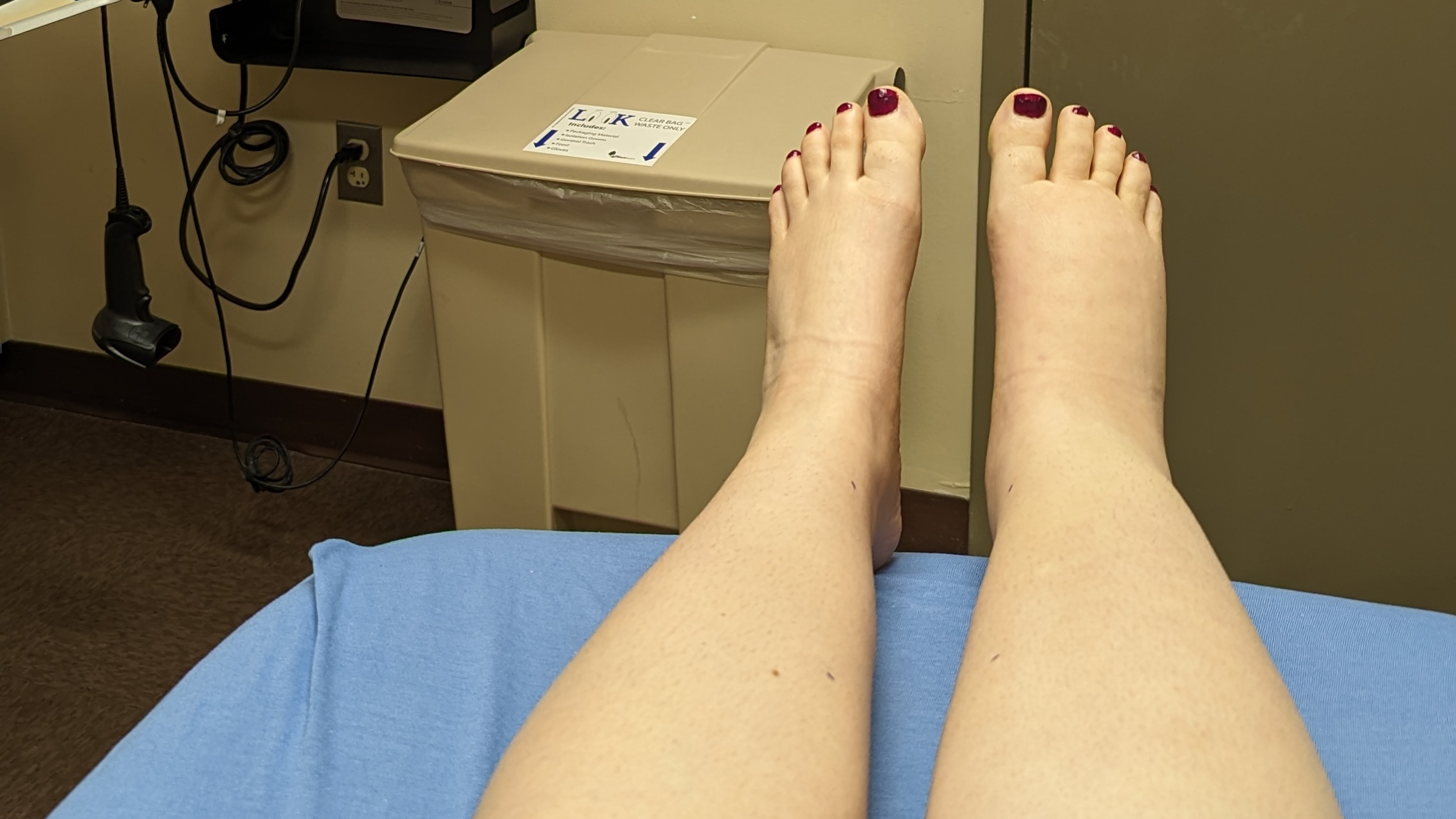There’s always something going on in the world of lymphedema and lymphatic research! It can be a lot to keep up with, so here’s a digest of some of the latest headlines from the past month carefully curated to keep you in the lymphie loop.
“Researchers Have ‘Eureka’ Moment When Studying Molecule’s Role in Lymphedema”
It all began with a curiosity about the molecular mechanisms of lymphatic anomalies in mice, when Tamara Terzian, PhD., and her research team discovered that the tumor-suppressor molecule p53 plays a key role in the development of the lymphatic network.
By targeting p53 to reduce its levels in animal models, Terzian’s team was able to reverse symptoms of lymphatic disease and reduce swelling in the mice. Preliminary data from human tissue has been encouraging, too: “It is quite astonishing,” Terzian says. “We had the eureka moment, and there it is: p53 plays a central role in some lymphatic disease.”
The findings could mean potential therapies not only for lymphedema, but for other illnesses intertwined with lymphatic disease, such as diabetes and cancer.
READ THE ARTICLE FROM UNIVERSITY OF COLORADO ANSCHUTZ MEDICAL CAMPUS.
“Discovery: Scientists find for the first time how the eyes drain cellular waste and debris”
We’ve recently learned of the brain’s glymphatic system, but new research shows there may be a similar system in our eyes.
An international team led by Dr. Maiken Nedergaard, a neuroscientist at the University of Copenhagen in Denmark, and Xiaowei Wang of both the University of Copenhagen and the University of Rochester in New York, have found evidence of a glymphatic system that clears metabolic and cellular debris from the mammalian eye; the waste is ultimately shuttled to the lymphatic vessels in the neck.
Their findings explain how an ocular glymphatic system maintains eye health, and suggests a link between eye diseases such as glaucoma and the malfunctioning of the glymphatic drainage pathways. It also sheds new light on how the eyes and brain share critical pathways.
READ MORE AT MEDICAL XPRESS AND THE SCIENTIST.
“Lymphedema and its Impact on Quality of Life”
Lymphedema is considered a progressive condition: it’s a chronic, degenerative, and inflammatory process affecting the soft tissues, skin, and lymph nodes and vessels. It also has considerable impacts on the health-related quality of life and psychological well-being of patients.
Studies indicate that quality of life improves with a reduction in limb volume, explains lymphedema specialist Joachim Zuther. Therefore, early diagnosis, evaluation, and coordinated multi-disciplinary treatment strategies by certified lymphedema therapists and qualified health care professionals are imperative to combat both the swelling and the psychological impacts of lymphedema.
READ THE ARTICLE FROM LYMPHEDEMA BLOG.
“The Best Preoperative Assessment Tools for Patients Undergoing Surgery for Secondary Upper Extremity Lymphedema”
In a recent study published in the journal Cancers, researchers from Memorial Sloan Kettering Cancer Center offered a detailed review of lymphedema assessment methods, confirming that preoperative assessment of upper extremity lymphedema is complex and requires multimodal assessment.
Although all the techniques they reviewed played a role, they identified the most valuable lymphedema assessment tools to be magnetic resonance angiography, bioimpedance spectroscopy, indocyanine green lymphography, and patient-reported outcome measures.
READ THE ARTICLE FROM MEMORIAL SLOAN KETTERING CANCER CENTER.
Compressed news: Coping with COVID-19
- Skin care, manual lymphatic drainage, and compression: Helen Hayes Hospital shares these and other helpful tips for managing lymphedema at home. (Helen Hayes Hospital)
- Social distancing tips: Ellie Lindsay, OBE, shares tips on how patients with a leg or foot problem can manage social distancing and self-isolation. (LR Self Care)
- Keeping fear and anxiety in check during COVID-19: “We are all living with fear these days. Sure, there is a lot of variance in the kind and the level of fear we each face and are trying to manage […] I am afraid too. I live with fear, yes. But do I live in fear? No.” (Nancy’s Point)
- Lymphedema under lockdown: “I thought I had my Lymphoedema management locked down,” writes Emma Robertson. “Sadly COVID-19 has dramatically blown apart all the routines that I had constructed to help keep this condition under control.” (Little Emma Bird)
- Skin rashes as an emerging symptom of COVID-19: As lymphies, we’re already hyper-aware of changes in our skin. Although more information is needed, here’s another reason to keep an eye out for rashes or other dermatological symptoms. (Cleveland Clinic)
- Dealing with lymphedema in the home office: Felicia Mitchell’s secondary lymphedema is well controlled, so she was surprised to feel swelling in her arm after the first few weeks of working from home: “What could I do? What could any of us do?” (CURE Magazine)
Keep your lymph moving at home: Cancer Research UK has some helpful videos on exercises you can do at home for lower extremity, upper extremity, and head and neck lymphedema, as well as one on deep breathing (below).
In Memoriam
The lymphedema community lost two members this month: Pamela Ross and Joshua Morrow.
Pamela Ross
Pamela Ross passed away on April 2, from COVID-19. She did not have lymphedema although she did have lupus, which her doctors indicated as an underlying condition that led to her rapid decline.
Ross was a major advocate for the lymphedema community. For the past six years, she worked for the Lymphatic Education & Research Network as the Director of Corporate Sponsorships and Chapter Relations. In an email, LE&RN’s President and CEO William Repicci shared how Ross’s legacy extends far beyond her advocacy work: “Pam’s impact is even better measured by the love she felt for those in the lymphatic community,” Repicci writes.
“She was passionate about [patients’] stories and determined to be a force for positive change.”
In Memorium, Pamela Ross. LE&RN must share devastating news about our beloved colleague. https://t.co/3FH57SOlH4 pic.twitter.com/hzBn427wNh
— LE&RN (@LymphaticNet) April 2, 2020
Joshua Morrow
Joshua Morrow inspired and delighted so many of us with his dedicated yoga practice as well as his advocacy for both lymphedema and Noonan syndrome.
A self-proclaimed ambassador of love and kindness, Morrow shared his positive perspective (and yoga poses!) on his Instagram and Facebook page; his photos often featured his pets, Buzz the cat and Roxy the dog, playfully lingering nearby as Morrow performed sun salutations and warrior poses. He also kept a blog where he wrote openly and honestly about his life with chronic illness.
Rest in peace, Pam and Joshua — thank you for the light you brought to our community. 💙




Leave a Reply